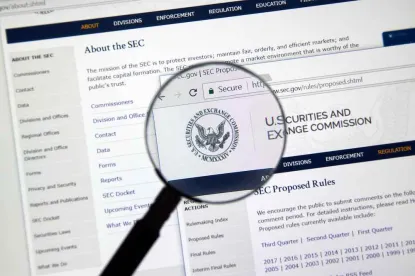In 2020, plaintiffs filed a series of class action lawsuits alleging that a number of digital tokens were actually “securities” and, thus, were illegally issued or traded on exchanges. Accusing a number of issuers and exchanges of violating federal securities laws and state blue sky laws the plaintiffs sought damages in the billions of dollars. Because the tokens were acquired a considerable time before the lawsuits were filed, defendants challenged the timeliness of the securities law claims. Plaintiffs argued that although the lawsuits would have normally been time barred under the statute of limitation that an exemption should be made under something called the “discovery rule” which can extend the limitations period for newly discovered information. The Plaintiff’s contended that the SEC’s Framework for Investment Contract Analysis of Digital Assets published on April 3, 2019, which states that the SEC views most digital tokens as securities, should be considered newly discovered information. Alternatively, plaintiffs contended, the defendants fraudulently concealed the claims, thus the limitations period did not begin to run until the fraud was revealed.
In one of the first cases to be decided after the suits were filed, the SDNY rejected all of the plaintiff’s arguments on the statute of limitations and dismissed the claims with prejudice. In re Bibox Group Holdings Limited Securities Litigation, Case No. 20cv2807 (DLC), Order dated April 16, 2021. First, the court limited the scope of the case to allow the plaintiff to only represent other persons who purchased the same tokens. The court next considered the statute of limitations arguments. Because the Securities Act Section 12(a)(1) claims are governed by a one-year limitations period, the court concluded the claims, filed roughly 16 months after the plaintiff’s purchase, were untimely filed. However, plaintiff contended that the discovery rule or fraudulent concealment theory saved his claims. The court reasoned that neither approach applied: (1) Section 12(a)(1) does not contemplate a discovery rule and, nevertheless, the rule would not help him because the Framework was merely a non-binding agency interpretation and did not give rise to new rights, and (2) the fraudulent concealment argument failed because plaintiff did not plead wrongful conduct with the degree of particularity required and did not describe how the defendants withheld material facts.
In regard to the Section 12(a)(2) and 29(b) claims, which are also subject to a one-year limitations period, the court recognized a discovery rule applies. But, for the same reasons a discovery rule – even if it existed – failed for Section 12(a)(1) claims, the result under Sections 12(a)(2) and 29 is no different. The agency interpretation of whether a digital asset is a “security” did not extend the statute of limitations period.
Finally, the court rejected the plaintiff’s Illinois blue sky law claim to void his purchase. The court found a critical element of his claim was missing – under the Illinois statute, the plaintiff had to allege he provided notice to the defendants of his intent to rescind within 6 months of learning the sale was voidable. The plaintiff had asserted the Framework represented his knowledge the tokens were a “security” but he waited over 12 months to give his notice. As a result, the court dismissed this claim as well.
Given the court’s explanation of the applicable statutes of limitation, the remaining cases likely will face similar obstacles. The court’s conclusion that the Framework does not save the limitations arguments will be a key factor to watch in future cases and is likely to hamper the ability of plaintiff’s to sue for damages related to illegal offerings of securities which took place during the “ICO heyday” of 2017-2018.



 />i
/>i


